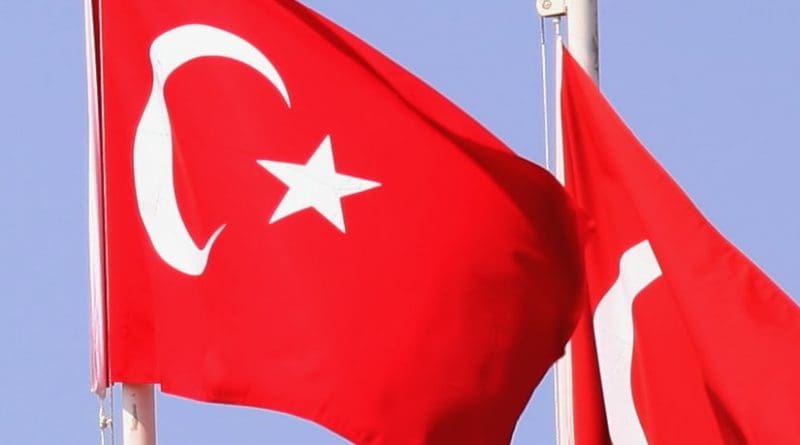A Challenging Year For Turkey In The Middle East – OpEd
By Arab News
By Sinem Cengiz*
The year 2017 was tough for the Middle East. The conflicts and crises in the region dominated Turkey’s foreign policy throughout the year as it faced complex challenges ranging from Syria’s civil war to the Kurdish referendum, from the Jerusalem issue to the rise and fall of Daesh.
Syria: Developments in Syria tested Turkey’s patience severely throughout 2017, as they had in the previous six years. Some argued that Turkey had softened its stance toward the Syrian regime, but that is not the case. Just this week, President Recep Tayyip Erdogan called Bashar Assad “a terrorist” and said it would be impossible to continue the Syrian peace process with Assad’s involvement.
However, Ankara has taken into account the reality on the ground and has re-emphasized that its priorities in Syria are border security and the threat from Kurdish groups. So Turkey has taken pragmatic steps to improve its relations with two of the key players in the Syrian crisis — Iran and Russia.
Turkey and Russia worked tirelessly throughout the year not only to find a political solution to the Syrian conflict but also to improve their bilateral relations. Erdogan and his Russian counterpart Vladimir Putin met eight times in 2017 alone. However, while Turkey’s relations with Tehran and Moscow improved, those with the West, particularly the US, have deteriorated for a number of reasons. In 2018, the Astana process will likely see Ankara work hand in glove with Russia and Iran. The future of Syria is extremely significant for the entire region’s political future.
Kurdish Referendum: The referendum held by the Kurdistan Regional Government (KRG) on Sept. 25 — despite harsh warnings from several global and regional actors, particularly Turkey and Iran — was a grave miscalculation. Since the Iraqi invasion of 2003, Turkey has enjoyed close diplomatic and economic ties with the KRG. Some thought that close relationship may lead Turkey to look positively on Iraqi Kurdistan’s aspirations for independence. They were wrong. The referendum posed a serious dilemma for Turkey. On the one hand, there was Ankara’s close ally, the KRG, and on the other the referendum’s possible threat to Turkey and the entire region. Turkey voiced its concerns about further instability in Iraq and about increasing separatist tendencies among Kurds in the region. Moreover, Ankara stated that it considered the referendum to be “a national security issue.”
Turkey remains opposed to any political advances by the Kurds, in both Iraq and Syria. This seems likely to be the initial focus of Turkish foreign policy in 2018 as Russia, Iran and Turkey are set to hold talks in January in Sochi, which the Kurdish Democratic Union Party (PYD), the Syrian wing of the Kurdistan Workers’ Party (PKK) plans to attend, despite Turkey’s objections.
Jerusalem: 2017 concluded with US President Donald Trump’s controversial announcement that America recognized Jerusalem as the capital of Israel and would relocate the US Embassy from Tel Aviv to Jerusalem. This quickly became Turkey’s hottest foreign policy matter.
Ankara’s objection to the US decision was not just led by government policy, but by a general expression of broad popular opinion in Turkey that unites all opposition parties: Turkey supports a Palestinian-Israeli resolution.
Turkey took successful steps both internationally and regionally against the move: Erdogan convened an emergency summit of the Organization of Islamic Cooperation (OIC) and Turkey welcomed the UN General Assembly’s rejection of the US decision, which — like the Kurdish referendum — failed to garner international support.
In 2018, according to reports, Turkey plans to launch fresh diplomatic initiatives to increase the number of countries that recognize Palestine as a state and East Jerusalem as its capital.
Let us hope that next year will see these ongoing crises reach a peaceful conclusion.
• Sinem Cengiz is a Turkish political analyst who specializes in Turkey’s relations with the Middle East. Twitter: @SinemCngz

